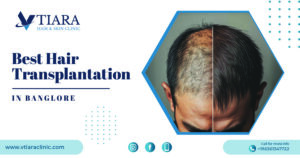Understanding Adult Acne: Causes and Effective Solutions
Adult acne is a common skin condition that affects many people well beyond their teenage years. It can be frustrating and impact self-esteem, but understanding its causes and effective solutions can help manage and treat this condition. In this guide, we will explore the reasons behind adult acne and the best strategies for achieving clear, healthy skin.
Causes of Adult Acne
- Hormonal Changes
Hormonal fluctuations are a significant factor in adult acne. Conditions like polycystic ovary syndrome (PCOS) or thyroid imbalances can lead to increased oil production and clogged pores, which may result in acne.
- Stress
Stress triggers the release of hormones like cortisol, which can increase oil production in the skin and lead to acne outbreaks. Managing stress through lifestyle changes and relaxation techniques can help reduce acne flare-ups.
- Diet
Certain foods can exacerbate acne. High-glycemic foods, such as sugary snacks and refined carbohydrates, can spike blood sugar levels and increase insulin, which may worsen acne. A balanced diet with plenty of fruits, vegetables, and whole grains is beneficial for skin health.
- Skin Care Products
Using the wrong skin care products can contribute to acne. Products that are too harsh or contain comedogenic ingredients can clog pores and cause breakouts. Choosing non-comedogenic and gentle products is essential for preventing and treating adult acne.
- Medications
Some medications, including certain contraceptives and corticosteroids, can cause acne as a side effect. If you suspect your medication is affecting your skin, consult with your healthcare provider to explore alternative options.
- Genetics
Genetics play a role in acne development. If your family members have had acne, you may be more predisposed to developing it yourself. Understanding your genetic risk can help tailor your treatment approach.
- Environmental Factors
Pollution, humidity, and exposure to environmental irritants can exacerbate acne. Keeping your skin clean and protected from environmental aggressors is crucial for maintaining clear skin.
Effective Solutions for Adult Acne
- Topical Treatments
Topical treatments are often the first line of defense against acne. These include:
- Benzoyl Peroxide: Kills acne-causing bacteria and helps to reduce inflammation.
- Salicylic Acid: Exfoliates the skin and helps unclog pores.
- Retinoids: Promote cell turnover and prevent clogged pores. Prescription retinoids like tretinoin can be particularly effective.
- Oral Medications
For more severe cases of adult acne, oral medications may be necessary. These include:
- Antibiotics: Reduce inflammation and bacterial growth. Commonly used antibiotics include doxycycline and minocycline.
- Hormonal Treatments: Birth control pills or spironolactone can help regulate hormones that contribute to acne.
- Isotretinoin: A potent medication used for severe acne that hasn’t responded to other treatments. It requires careful monitoring due to potential side effects.
- Professional Treatments
Dermatologists offer several professional treatments that can be effective for adult acne:
- Chemical Peels: Help exfoliate the skin and reduce acne lesions. Salicylic acid and glycolic acid peels are commonly used.
- Laser Therapy: Targets acne-causing bacteria and reduces inflammation. Laser treatments can also improve the appearance of acne scars.
- Light Therapy: Uses specific wavelengths of light to reduce acne-causing bacteria and inflammation.
- Skincare Routine
Maintaining a proper skincare routine is crucial for managing adult acne:
- Cleansing: Use a gentle, non-comedogenic cleanser to remove excess oil and impurities without irritating the skin.
- Moisturizing: Even if your skin is oily, use a lightweight, non-comedogenic moisturizer to keep your skin hydrated and balanced.
- Sun Protection: Apply a broad-spectrum sunscreen daily to protect your skin from UV damage and prevent post-acne hyperpigmentation.
- Lifestyle Changes
Making certain lifestyle changes can help manage adult acne:
- Diet: Adopt a healthy diet rich in fruits, vegetables, and whole grains while minimizing sugary and processed foods.
- Stress Management: Engage in stress-reducing activities such as exercise, meditation, or hobbies to help control acne flare-ups.
- Avoid Touching Your Face: Minimize touching your face to reduce the transfer of bacteria and oils that can contribute to acne.
- Regular Dermatologist Visits
Regular visits to a dermatologist can help you stay on top of your acne treatment plan. A dermatologist can provide personalized advice, monitor your progress, and adjust treatments as needed.
FAQs about Adult Acne
Q1: Can adult acne be prevented?
While it may not be entirely preventable, you can manage adult acne by maintaining a consistent skincare routine, avoiding known triggers, and seeking professional advice.
Q2: Are there any natural remedies for adult acne?
Some natural remedies, such as tea tree oil and green tea extract, may have mild anti-acne effects. However, their efficacy varies, and it’s best to use them in conjunction with proven treatments.
Q3: How long does it take to see results from acne treatments?
Results can vary depending on the treatment and severity of the acne. Generally, it may take several weeks to months to see noticeable improvements.
Q4: Can makeup contribute to adult acne?
Yes, using comedogenic or heavy makeup can clog pores and exacerbate acne. Opt for non-comedogenic products and ensure you remove makeup thoroughly each night.
Q5: Is it safe to use multiple acne treatments at once?
Using multiple treatments can be effective but may increase the risk of irritation. It’s important to follow a dermatologist’s advice to avoid over-treating your skin.
For personalized acne treatment and skincare solutions, visit VTIARA HAIR & SKIN CLINIC. Our team of experts can help you address adult acne with customized plans tailored to your specific needs. Visit vtiaraclinic.com to learn more and schedule a consultation.
